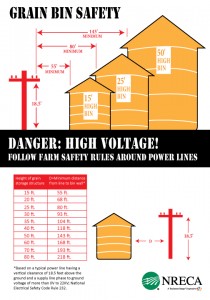The Tennessee Valley Lineman Rodeo is a two-day competitive event started in 1998 by and for the employees of Tennessee Valley Authority power distributors. The Rodeo, which includes competitive events for apprentices, journeyman teams of three, individual linemen and senior individuals (age 45 and up) recognizes and rewards excellence in safety, skill and knowledge in their field.
Held in various locations across the Tennessee Valley, the Rodeo provides an opportunity for line workers to showcase their talents and for family and friends to show their support. Participants, spectators and sponsors continue to look forward to the Rodeo as it cultivates a pride in the trade and a kinship among participants and attendees alike.
The 2014 TVPPA Lineman Rodeo was held in Bowling Green, Kentucky, on June 6 and 7. Results of Tennessee Electric Cooperative Association members are listed below (top three in each category).
Apprentice Results
Overall Apprentice
Dustin Fugate, Holston EC
Bryan Allen, Holston EC
Kyle Thompson, Caney Fork EC
Apprentice Crossarm Relocation
Dustin Fugate, Holston EC
Evan McMillan, Holston EC
Kyle Frazier, Caney Fork EC
Apprentice Hurtman Rescue
Bryan Allen, Holston EC
Dustin Fugate, Holston EC
Kyle Thompson, Caney Fork EC
Apprentice Primary Insulator Replacement
Bryan Allen, Holston EC
Dustin Fugate, Holston EC
Kyle Thompson, Caney Fork EC
Apprentice Triplex Service Installation
Evan McMillan, Holston EC
Dustin Fugate, Holston EC
Jarrod Bachman, Holston EC
Apprentice Written Test
BJ Bobo, Middle Tennessee EMC
Dustin Fugate, Holston EC
Scott Johnson, Caney Fork EC
Team Results
Team Overall
Gibson EMC
Holston EMC
Cumberland EMC
Team A4 Polyinsulator Change Out
Cumberland EMC
Gibson EMC
Holston EMC
Team Capacitor Grounding
Gibson EMC
Holston EMC
Cumberland EMC
Team Hurtman Rescue
Gibson EMC
Holston EMC
Cumberland EMC
Team Transformer Change
Gibson EMC
Holston EMC
Cumberland EMC
Individual Journeyman Results
Individual Journeyman Overall
Gregg Hale, Middle Tennessee EMC
Danny Crawford, Middle Tennessee EMC
Kenny Poore, Plateau EC
Individual Journeyman Cutout and Arrestor Change
Danny Crawford, Middle Tennessee EMC
Chris Couch, Holston EC
Gregg Hale, Middle Tennessee EMC
Individual Journeyman Hurtman Rescue
Kenny Poore, Plateau EC
Danny Crawford, Middle Tennessee EMC
Gregg Hale, Middle Tennessee EMC
Individual Journeyman Jumper Replacement
Chris Couch, Holston EC
Gregg Hale, Middle Tennessee EMC
Kenny Poore, Plateau EC
Individual Journeyman Phase Swap
Gregg Hale, Middle Tennessee EMC
Kenny Poore, Plateau EC
Danny Crawford, Middle Tennessee EMC
Senior Results
Senior Overall
Glenn Risner, Holston EC
Trent Cary, Gibson EMC
Gregg Hale, Middle Tennesse EMC
Senior Hurtman Rescue
Glenn Risner, Holston EC
Trent Cary, Gibson EMC
Gregg Hale, Middle Tennesse EMC
Senior Primary Service Installation
Trent Cary, Gibson EMC
Gregg Hale, Middle Tennesse EMC
Ronnie Morgan, Plateau EC
Senior Triplex Service Installation
Glenn Risner, Holston EC
Gregg Hale, Middle Tennesse EMC
Trent Cary, Gibson EMC



